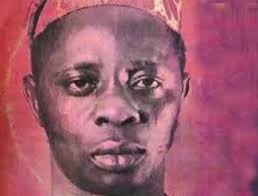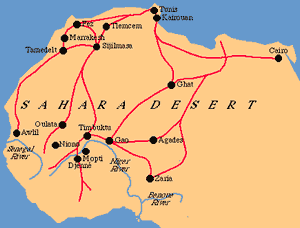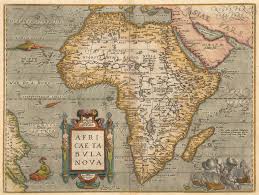Ayinla Omowura: The Fiery Voice of Apala and a Musical Legend

Ayinla Omowura: The Fiery Voice of Apala and a Musical Legend
Dive into the life of Ayinla Omowura, the iconic Apala musician whose powerful voice and bold lyrics left a lasting mark on Yoruba culture and Nigeria’s music history.
Waidi Ayinla Yusuf Gbogbolowo, widely recognized as Ayinla Omowura, remains one of Nigeria’s most influential musicians in the Apala genre. Born in 1933 in Itoko, Abeokuta, Ogun State, Omowura’s music was deeply rooted in Yoruba traditions, social consciousness, and raw street energy. His rise from humble beginnings to becoming a cultural icon is a story of passion, defiance, and an undying love for music.
Early Life and Beginnings
Born to Yusuff Gbogbolowo, a blacksmith, and Wuramotu Morenike, Omowura was not privileged to have formal education. Instead, he apprenticed under his father before branching into different trades, including driving, butchery, carpentry, and working as a bus park attendant. However, fate had different plans for him.
Adewole Alao Oniluola, a seasoned drummer who introduced him to the Apala music scene, discovered his talent. Under Oniluola’s guidance, Omowura developed a distinct musical style characterized by deep Yoruba proverbs, streetwise lyricism, and hard-hitting social commentary. His aggressive and audacious persona became his trademark, setting him apart from his contemporaries.
Rise to Stardom and Musical Influence
Omowura’s breakthrough came in the 1970s when he signed with EMI Records. His albums resonated deeply with the Yoruba working-class audience, addressing social issues, government policies, and traditional values. Some of his most popular records include:
- National Population Census (1972) – Educated listeners about Nigeria’s national census.
- Challenge Cup ’73 (1973) – Explained the transition from left-hand to right-hand driving in Nigeria.
- Owo Udoji (1976) – Acknowledged the government’s salary increase while advocating for the private sector to follow suit.
- Orin Owo Ile Eko (1973) – Discussed Lagos State's rent edict and its impact on citizens.
Omowura was known for his ability to weave intricate Yoruba proverbs, puns, and metaphors into his songs. His fearless and outspoken nature led to rivalries with other musicians, including Haruna Ishola, Ayinde Barrister, Fatai Olowonyo, Yesufu Olatunji, and Dauda Epo Akara. Despite these feuds, he remained a dominant force in the Apala music scene.
Personality and Controversies
Omowura was a man of many contradictions. Though he was a devout Muslim who performed the Hajj in 1975, he was also known for engaging in traditional spiritual practices. His flamboyant lifestyle earned him the nickname “Hadji Costly”, reflecting his love for high-quality Swiss lace agbadas and gold jewelry.
His quick temper and love for marijuana further solidified his reputation as an unpredictable and intense personality. His lyrics often took jabs at societal ills, corrupt leaders, and even personal adversaries. He was particularly vocal against women who bleached their skin, promiscuous lifestyles, and dishonesty in relationships.
Tragic Death and Aftermath
On May 6, 1980, Omowura met a tragic end at the age of 47. During an argument at a beer parlor in Abeokuta, his manager, Fatai Bayewumi, struck him on the head with a beer glass, leading to fatal injuries. The shocking murder sent ripples across Nigeria, leaving his fans devastated. Bayewumi was later convicted and sentenced to life imprisonment.
Omowura’s death marked the beginning of the decline of Apala music, as his contemporary, Haruna Ishola, also passed away in 1983. This led to the rise of Fuji music, with musicians like Ayinde Barrister and Kollington Ayinla taking center stage.
Legacy and Continued Influence
Despite his untimely death, Ayinla Omowura’s legacy remains alive. His music continues to influence generations of artists, including Terry Apala, Q-dot, and Mayolee. In 2020, journalist Festus Adedayo published “Ayinla Omowura: Life and Times of an Apala Legend”, chronicling his impact on Nigerian music and culture.
Additionally, in 2021, renowned filmmaker Tunde Kelani released “Ayinla”, a biopic celebrating Omowura’s life, starring Lateef Adedimeji in the lead role. The film reignited interest in his music and brought his story to a new audience.
His home in Itoko, Abeokuta, was also renovated in honor of his contributions to Nigerian music, thanks to former Ogun State governor, Ibikunle Amosun.
Conclusion
Ayinla Omowura was more than just a musician, he was a social commentator, a voice of the streets, and a fearless cultural icon. His ability to merge traditional Apala sounds with contemporary societal discourse made his music timeless. Though his life was cut short, his voice continues to echo in the hearts of his fans, proving that true legends never die.
May his soul continue to rest in peace.


